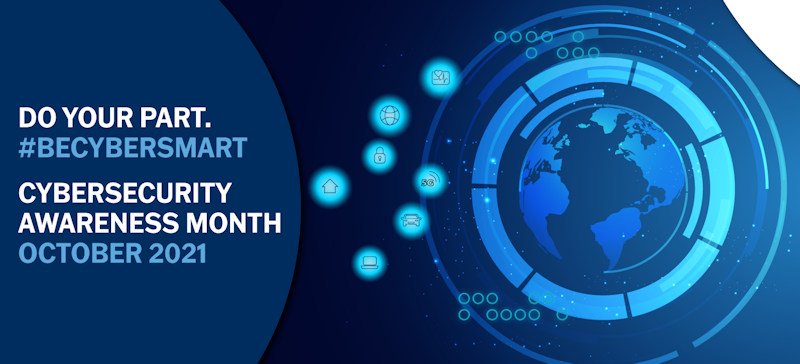FBI marks Cybersecurity Awareness Month: How to stay safe at home and work

PORTLAND, Ore. (KTVZ) -- During Cybersecurity Awareness Month, observed each October, the FBI and its partner agencies remind you to do your part and #BeCyberSmart all year long.
As the premier cyber investigative agency, the FBI works to keep you safe online, but there are many simple steps you can take to help protect yourself and your family. If you do become a victim, contact us at the FBI’s Internet Crime Complaint Center (www.ic3.gov) to report online crime.
This week's focus is on staying safe at home and at work. A video version of this release is available at: https://www.youtube.com/watch?v=o-7PK8c2fsg&t=8s
The speaker is Supervisory Special Agent Gabriel Gundersen. SSA Gundersen supervises the Oregon Cyber Task Force.
Q & A
What basic steps you can take at home or at work to keep you safe in your digital world?
- Make sure you update your devices, apps, and software as soon as those updates are available. Turning on automatic updates makes the process easier.
- Don’t click on any links or attachments in texts, emails, or social media posts.
- Don’t give anyone personal or financial information unless you initiate the contact, and you are certain the person is legitimate.
- Regularly check passwords and consider using passphrases.
- Use multi-factor authentication.
How do I keep my passwords safe?
There are some basic steps you should take to keep your passwords safe.
- Check to see if any of your old passwords have been compromised. Google and Firefox both offer tools or you can look for a reputable cyber security provider to do it for you.
- Consider using a reputable password keeper. You remember one complex password, and the keeper remembers everything else.
What is a passphrase and how can it be better than a password?
A passphrase is a long series of otherwise unconnected words that mean nothing to a hacker but something memorable to you. Length makes it exceptionally complex and hard to break – but easy for you to remember. Try something from your last vacation: “Blue Ocean Necklace Hula Whales” is 26 characters of trouble for a hacker.
What is multi-factor authentication?
Multi-factor authentication - or MFA - is a great way to protect you and your devices. Basically, multi-factor authentication requires two or more pieces of information to confirm that “you” are really “you” when logging into a system. There are:
- Things you know (such as a password)
- Things you are (such as a face or fingerprint scan)
- Things you have (such as a device that gives you a constantly changing access number)
Many vendors, including banks, are using MFA now. For instance, you may be required to put in a user ID and password as well as a code that is texted to your phone before the system allows you access. That’s multi-factor authentication.
What should I know about WiFi safety?
Public WiFi at your favorite coffee shop, store, or hotel is easy and convenient, but it can also be a “hotspot” for criminal activity. Best bet: use the secure data plan on your device to do your browsing.
At home, make sure your WiFi system has a strong and updated firewall as well as the latest security protocols to keep intruders out. WPA3 is currently the most secure protocol option.
###
The video releases from FBI Portland's previous Cyber Security Month pieces are available:
Week 1 - Cybersecurity basics with Assistant Special Agent in Charge Eliza Odom - https://www.youtube.com/watch?v=2WU63yNub3I&t=4s
Week 2 - The ABC's of Crytocurrency with Forensic Accountant Brandon - https://www.youtube.com/watch?v=NkZe5vRAHF8&t=2s
Week 3 - Ransomware - What it is and how to protect yourself with Supervisory Special Agent Gabriel Gundersen -https://www.youtube.com/watch?v=rN10oCBe_ZA&t=16s